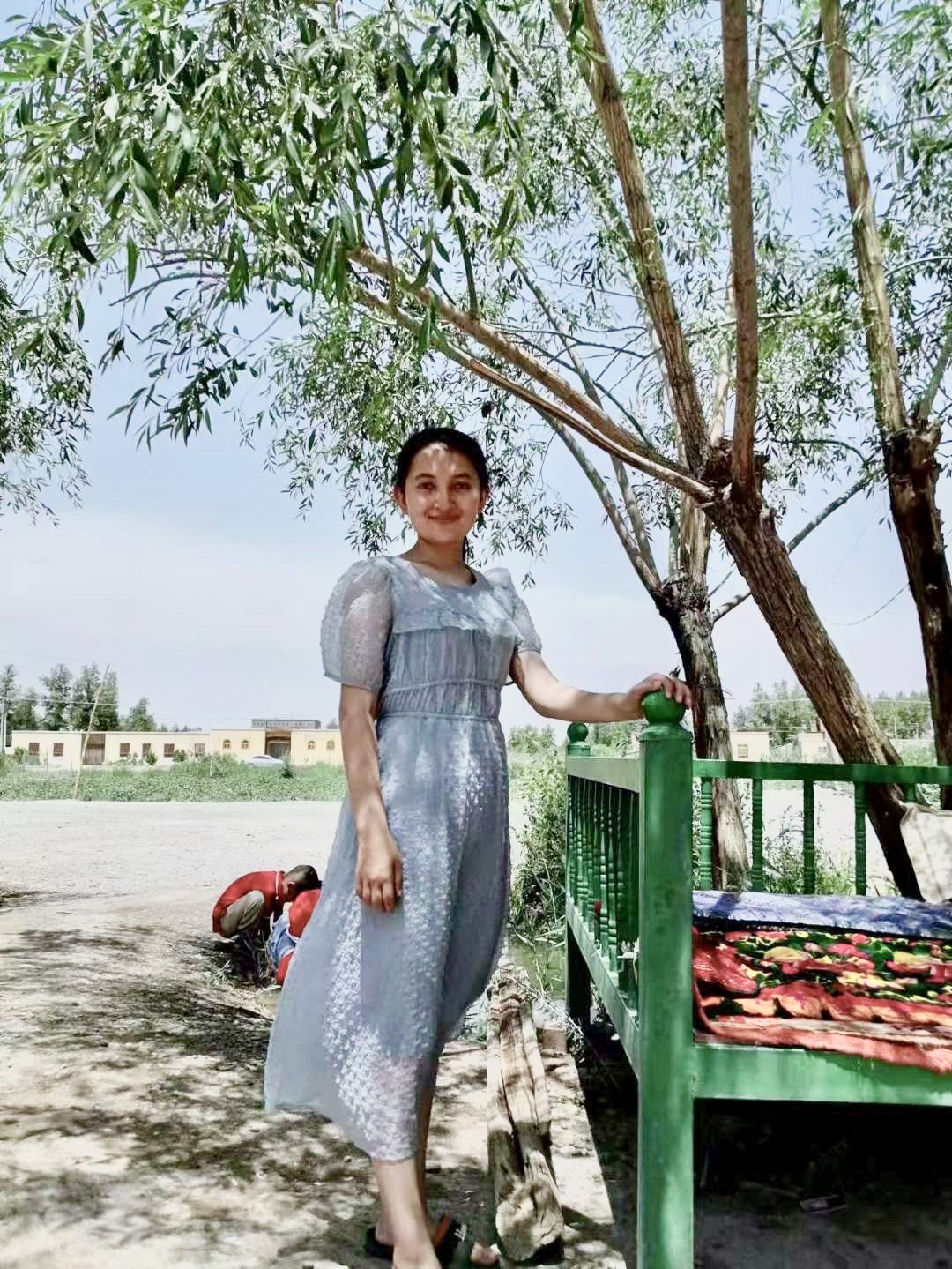Kamile Wayit, a 19-year-old Uyghur female university student was sentenced on March 25, 2023, under the charge of “promoting extremism” after posting a video on WeChat about the November 2022 “A4 protests” in China. A spokesperson from China’s Ministry of Foreign Affairs confirmed her conviction to the Economist magazine but did not confirm the length of the sentencing.
According to a source close to Kamile, she had been suffering from depression and was scheduled to have an eye surgery in the summer of 2023.
Kamile must be released immediately as she was only peacefully exercising her right to freedom of expression. Pending her release, the Chinese authorities must ensure that she has access to adequate medical care when needed, access to her family and a lawyer of her choice and she is not subjected to torture and other ill-treatment.
Write to the Party Secretary of Xinjiang urging him to:
- Immediately release Kamile Wayit, unless there is sufficient, credible and admissible evidence that she has committed an internationally recognisable criminal offence;
- Pending her release, reveal her whereabouts, allow her regular access to her family and a lawyer of her choice;
- Pending her release, ensure that Kamile Wayit has access to adequate medical care, and she is not subjected to torture and other ill-treatment.
Write to:
Party Secretary of Xinjiang
Ma Xingrui
479 Zhongshan Lu, Tianshan Qu, Urumqi,
830041, Xinjiang Uyghur Autonomous Region,
People’s Republic of China
Salutation: Dear Secretary Ma,
And copy:
His Excellency Peiwu CONG
Ambassador
Embassy of the People’s Republic of China
515 St. Patrick Street
Ottawa, ON K1N 5H3
Tel: (613) 789-3434,3513,8422/762-3769 (24h) Fax: (613) 789-1911
Email: chineseembassy.ca@gmail.com
Background
Kamile Wayit is a student at the Henan Shangqiu Institute of Technology (河南省商丘工学院), majoring in preschool education. She was born in Atush City (the capital of the Kyrgya autonomous prefecture of Kizilsu, Xinjiang) and completed her primary school there. At the age of 14, she had to live alone in Urumqi for two years between 2017 and 2019, because her father was held in a ‘re-education’ camp during that period. Kamile’s brother describes her as “very mature and thoughtful”.
In early June 2023, the Spokesperson’s office of the Ministry of Foreign Affairs responded to the question of The Economist Magazine that Kamile Wayit had already been sentenced under the charge of “promoting extremism” on March 25, 2023 and she is currently serving the term. The authorities did not mention where Kamile had been held and there is no information regarding the length of her sentencing. The maximum jail term for ‘promoting extremism’ is five years.
Kamile’s sentencing might be related to a video that she posted on WeChat in November 2022 about the protests that took place across China to commemorate the victims of a fire in Urumqi. Soon after, Kamile’s father received a warning call from the police, and she deleted the post. During the same period, Kamile also reconnected with her brother who lives abroad and has spoken out on Uyghur issues. Her communication with her brother might have also played a role in her detention.
About the “A4 Protests” in China
On Thursday, November 24, a fire broke out in an apartment building in Urumqi, killing at least 10 people, according to government sources. Many blamed Covid-19 restrictions for the deaths but local authorities have disputed this claim.
This did not stop protests from breaking out in Urumqi, the capital of the western region of Xinjiang. The next morning, the government declared that the Covid-19 outbreak was under control and the city would ease lockdowns, following more than 100 days of severe restrictions on people’s movement.
Starting on November 25, videos shared on social media showed protests breaking out across universities and cities throughout China, including in Beijing, Guangdong, Shanghai and Wuhan. Peaceful protesters commemorated the victims of the Urumqi fire and called for the easing of lockdown measures.
Many also demanded that censorship end and some called for President Xi to step down. Large numbers of people were detained for participating in peaceful protests against Covid-19 restrictions. It remains unclear how many remain in detention. Videos circulated online show police beating protesters during arrests.

About Xinjiang
Xinjiang is one of the most ethnically diverse regions in China. More than half of the region’s population of 22 million people belong to mostly Turkic and predominantly Muslim ethnic groups, including Uyghurs (around 11.3 million), Kazakhs (around 1.6 million) and other populations whose languages, cultures and ways of life are different from those of the Han, who are the majority in “interior” China.
Since 2017, under the guise of a campaign against “terrorism” and “religious extremism”, the government of China has carried out widespread and systematic human rights violations against Muslims living in Xinjiang. It is estimated that over a million people have been arbitrarily detained in internment camps throughout Xinjiang since 2017.
The Chinese government has gone to great lengths to cover up the human rights violations taking place in Xinjiang, and to prevent members of the Uyghur diaspora from speaking up about them. Amnesty International has documented numerous cases where Uyghurs, Kazakhs and other Turkic Muslim people in Xinjiang had been detained simply for living, travelling, or studying abroad or for communicating with people abroad. Many were detained simply for being “connected” with people who lived, travelled, studied, or communicated with people abroad.
In August 2022, the Office of the High Commissioner for Human Rights released a long-awaited report reinforcing previous findings by Amnesty International and others. These findings reveal the extent of arbitrary and discriminatory detention of Uyghurs, Kazakhs and other predominantly Muslims in Xinjiang, which may constitute international crimes, in particular crimes against humanity. It also documented allegations of torture or other ill-treatment, incidents of sexual and gender- based violence, forced labor and enforced disappearances, among other grave human rights violations.













